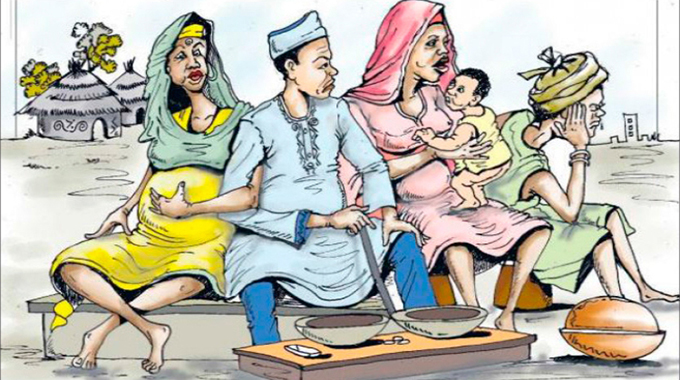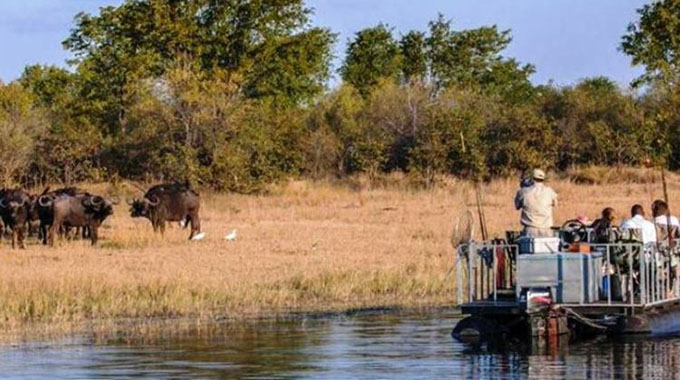Irrigation: The answer to climate change
BP: Zimbabwe is endowed with huge water resources and land. The land reform even adds value to the land resource. The climate change in general and erratic rainfall pattern threatens to erase the gains of the land reform and the solution simply lies in smallholder irrigation schemes in communal and A1 resettled areas.
IG: What effects would these small farmers have on our food production?
BP: With irrigation, Zimbabwe has the capacity to feed 10 times the number of people it is currently feeding. We have the land, we have the water and we have the human resource to embark on that kind of production.
All we need is invest in that sector and put our house in order by irrigating seriously. Israel is a desert, I have been there myself, but they move water from Golan Heights and irrigate the desert and export food, even. We are not a desert, our soil is fertile and there is plenty of water flowing and being lost to the oceans and seas. There is also plenty of water in the dams.
IG: So what should we do as a nation?
BP: It is simple knowledge that any serious farmer needs irrigation in order to be successful. This business of planting and then looking up to the skies should stop if we are to fully harness the potential of the land reform programme.
We don’t have to be having one eye on the ground and another eye on the sky. We must be certain that we have the water and we are planting this date and water is at our disposal. As a nation we must admit we have harnessed very little water from the Zambezi River, from other rivers and from the dams we have for irrigation purposes.
Excess water has always spilled to oceans and seas and we have used a very insignificant percentage.
IG: Do you have other examples?
BP: I was one of the engineers at the construction of Osborne Dam on the Odzi River and it was supposed to irrigate many places down to Nyanyadzi in Chimanimani but as it stand very little has been harnessed from it. We have many in land dams, most of them built by the department of water and can be put to good use.
Without irrigation control water serious farming is not guaranteed. Chivero, Mtirikwi, Bangala, Muzwi, Manyuchi and so on, are dams that we have not seriously tapped into irrigation for smallholder farmers.
IG: We have just had a national budget announced, what effect does it have on agriculture?
BP: I noticed there is some commitment to rehabilitation of irrigation schemes such as Nyanyadzi, Bonde and many others which are smallholder schemes and should be the mainstay of this country’s food stability. The current fiscus points at that kind of realization. But, the private sector must also own up and assist government in this irrigation scheme. If both Government and private sector reserve 10 years for the rehabilitation and establishment of smallholder irrigation schemes, we can easily turnaround our fortunes as a country.
Most of the irrigation schemes you see today were established through the Agriculture Fund and the Agriculture Finance Co-operation and we need to reestablish those funds.
IG: So where do the new farmer or A1 farmer stand in this matrix?
BP: New farmers are the mainstay of national food security. They have come into the country’s farming matrix and are very important to the cause of national food security and national development itself.
All we need to do is finance irrigation schemes and where there already existed irrigation schemes, they were meant for former white commercial farmer and they now need to be rehabilitated to become compatible to the new farmer. The new farmer can do extremely well if finance is made available.
IG: And, now to your company Waterflo, what do you do?
BP: We move water. We are an indigenous company that moves water to municipalities, rural councils, homes, individuals, smallholder farmers and irrigation schemes. We move water all over. We are an indigenous company that specializes in moving water to anywhere.
IG: Where are your footprints?
BP: As Waterflo, we have done a lot of government-driven water movement in terms of irrigation schemes, small or big, we have done for individuals including Cabinet Minister who got land under the land reform.
We have worked in Dotito, Chipinge, Rushinga, Harare, Ruwa and Chegutu. In Ruwa and Chegutu we have assisted the councils there move water to solve water problems in homes and industries. We have been all over and we have also done NGO sponsored irrigation work and rehabilitation of smallholder irrigation schemes and piped water schemes.
IG: Where do you get the material given that Zimbabwe has been under sanctions?
BP: We manufacture all the pipes and assembly water pumps in our workshop here in Harare. We do the real engineering ourselves. We manufacture almost everything we want for moving water.
Right now our major project is the water we are doing to provide water to Ruwa Town Council. Some of the things we manufacture are specifically designed for individual projects. We also do our own survey and design for water projects such as piped water and irrigation schemes.
IG: On that note, I have seen many Zimbabwean farmers buying water pumps and generators but their individual irrigation schemes don’t seem to work. Where is the problem?
BP: You are very right. Many Zimbabwean farmers, especially tobacco farmers have been buying water pumps without first designing irrigation schemes and later they discover they have bought the wrong pump or the place from which they want to irrigate is not suitable. Before anyone even starts buying equipment, there is need for a survey and a design so that you buy specifically required goods.






Comments